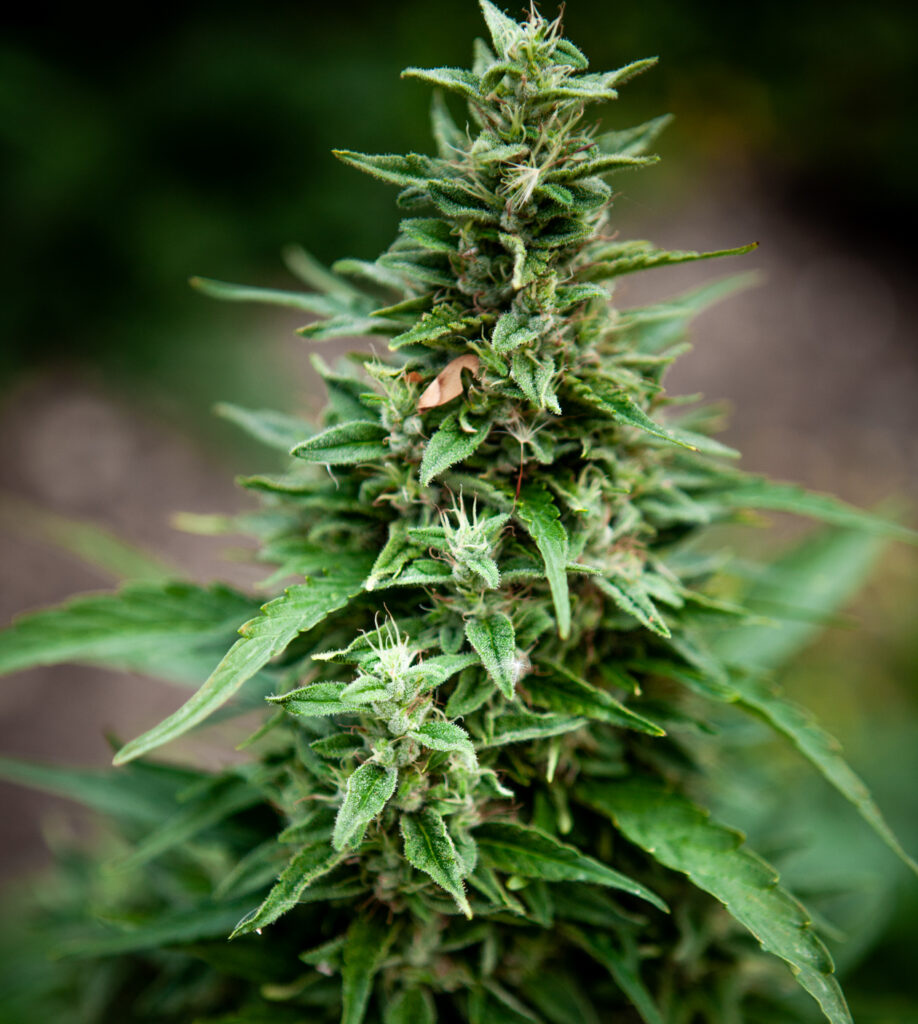
Features
Cultivation
Opinion
Production
Testing
Testing discrepancies in cannabis and hemp, a coastal island perspective
In this Cultivation column, Adam Clarke, CEO, Stratus Designs and founder of Galiano Grow House provides a personal perspective on hemp testing and poses questions about inconsistencies.
March 27, 2023 By Adam Clarke
 Galiano Grow House hemp, Galiano Island, B.C. Photo: Adam Clarke
Galiano Grow House hemp, Galiano Island, B.C. Photo: Adam Clarke Cannabis testing and consistency has been a popular discussion for my cultivation and processing clients across the country. I have heard of several labs and numerous pieces of conflicting information about which labs test which way, and which will render “better” results.
There is no hiding in this industry that if I send the same flower or the same oil to 10 different testing sites in Canada, I will likely receive 10 different results. I have seen hundreds of COAs, and I can say for certain that they all look different; a common sentiment, I’m sure.
I am certainly no scientist, however if so many aspects of cannabis are standardized, why is it that testing isn’t, and how does it affect the industry at large?
The Canadian recreational market has gone on a “THC craze.” Where did the balance go and the presence of micro-cannabinoids? I’m sure many users remember that “mythical” strain they smoked that tested low THC, yet they remember being the most high they’ve ever been.
Why is it that “THC-b” (a novel hemp cannabinoid) and “THC-p” (a newly identified cannabinoid) are generally not even tested for, yet scientists believe to have determined that increasing the length of the chain increases the receptor binding affinity compared to normal THC.
Does that mean these other cannabinoid types may be exponentially stronger, affecting the user differently?
Conducting tests
I know hemp sampling much better than THC cannabis testing procedures as I am operating my own hemp farm, Galiano Grow House.
The regulations for registering a hemp cultivar in Canada require samples of bud from three heights on the plant and leaves from three heights of the plant.
The combined biomass should be less than 0.3 per cent THC for the hemp to be permitted for cultivation in Canada.
This method however does not imply that the nicest buds on the hemp plant must not test over 0.3 per cent THC – it is completely legal for the farmer to have over 0.3 per cent THC, assuming they grew certified seed.
In fact I would state that the majority of all hemp farms in Canada have some buds that test over 0.3 per cent THC, and it’s completely legal!
A visit from Health Canada
When Health Canada paid a visit to my farm to sample my hemp this year, they did not follow the same testing procedure that was used to get seed registered in Canada. They came to the farm and cut the tops off the sample plants and sent them off to the lab.
How is it that even within hemp, testing isn’t standardized when compared to registering a hemp cultivar vs. testing the field grown crop?
All cannabis producers in the country, be it CBD or THC, deserve standardized testing. Until this sample was tested from my farm, I was unaware that Health Canada had their own in-house testing lab.
If Health Canada has its own lab and its own procedures, how come it’s not standardized to all labs? Why can I send my sample to many labs and get numerous results?
Looking ahead
When I pick up a bottle off the retail shelf, I should know that in Victoria or in Halifax, my cannabis is the same strength with consistent labeling regardless of who grew the product.
We as the producers and as the public should be pushing for more standardization about how testing facilities can provide a more detailed report on the constituents of our plants, and we should know that it has all been tested in the same manner.
Better and more detailed testing will only help the recreational and medical communities better understand the products we are consuming, leading to more informed decision-making and perhaps lessening the emphasis on THC.
While I rarely compare cannabis and alcohol due to alcohols significantly greater negative effects on the user, I must say that at least the alcohol testing is standardized and has been for years. Though understandably so as a more mature market.
We need to work together as a community to help push for standardized testing in all aspects of cannabis. This means education from the top down so we as Canadians can enjoy consistency across the country.
Print this page